AI Ethics vs AI Safety
In the age of information, ethics stands as a beacon that guides decision-making across various sectors. Effective headlines focusing on ethics play a crucial role in shaping narratives and informing the public on critical issues. This blog delves into various dimensions of ethics, providing valuable insights and resources to encourage ethical behavior in personal and professional spheres.
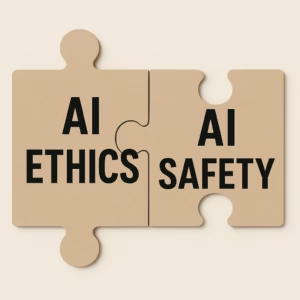
As society continues to grapple with complex ethical dilemmas—from digital privacy concerns to corporate responsibility—understanding the vital role of ethics becomes increasingly essential. This guide outlines key areas where ethics intersect with our daily lives, presenting compelling headlines to provoke thought and encourage ethical discourse.
The Importance of Ethical Journalism
Ethical journalism serves as the backbone of informed democracy. With sensationalism often overshadowing genuine facts, journalists must adhere to ethical standards to promote accountability and transparency. Headlines that champion ethical journalism not only inform the public but also foster trust between the media and the community.
When crafting headlines that focus on ethical journalism, it’s crucial to emphasize integrity and accuracy. These elements help define the purpose of news and its role in society, reinforcing the journalist’s responsibility to provide well-rounded and factual information, steering the audience away from misinformation.
Ethical Business Practices in the Modern Economy
In today’s fast-paced economy, ethical business practices have become paramount. Businesses that prioritize ethical considerations tend to build stronger reputations and foster deeper customer loyalty. Ethical headlines can highlight successful brands that champion social responsibility, aligning corporate goals with ethical standards.
Corporate social responsibility (CSR) is a driving force in promoting ethical practices. More businesses are recognizing that consumers prefer to engage with ethically responsible brands. Headlines that focus on CSR success stories can inspire other companies to adopt similar initiatives, fostering a ripple effect of positive change across various industries.
Moreover, the rise of social media and instant communication has impacted how companies convey their ethical commitments. Brands are now challenged to present their ethical practices transparently. Crafting headlines that spotlight companies embracing ethical transformations can serve to motivate others to follow suit in their respective industries.
Ethics in Technology: Navigating the Digital Age
The rapid evolution of technology presents unique ethical challenges that require scrutiny. The proliferation of artificial intelligence, data privacy concerns, and algorithmic biases underline the critical need for ethical considerations in technological advancements. Headlines that focus on ethics in technology can illuminate these challenges, encouraging discussions among policymakers, developers, and the public.
Furthermore, ethical guidelines in technology serve to protect users and uphold fundamental rights. By emphasizing responsible innovation, we can ensure that technological progress does not come at the expense of ethical standards. Headlines that address the ethical implications of emerging technologies can stimulate awareness, prompting stakeholders to consider the long-term consequences of their decisions.
In addition to addressing emerging dilemmas, it’s essential to promote ongoing education and awareness around technology ethics. This helps in shaping informed users who are capable of recognizing ethical challenges and advocating for ethical solutions. By highlighting educational initiatives and organizations dedicated to tech ethics, we can establish a culture of responsibility and accountability in the digital realm.
Ethical Decision Making in Everyday Life
In our personal and professional lives, the ability to navigate ethical dilemmas is crucial. Everyday decisions can have significant ethical implications, prompting individuals to evaluate their choices’ potential consequences. Headlines focusing on ethical decision-making can inspire reflection and discussion, helping individuals cultivate their ethical compass.[YOUTUBE]
Creating frameworks for ethical decision-making can serve as valuable tools for both individuals and organizations. By emphasizing methodologies such as utilitarianism, rights-based ethics, or virtue ethics, headlines can guide readers toward making informed and compassionate choices that consider both personal and societal impacts.
Moreover, ethical decision-making in leadership is particularly vital. Leaders set the tone for workplace culture, and their decisions reverberate throughout their organizations. By focusing on ethical leadership within headlines, we can highlight role models who embody ethical behavior and inspire others to adopt similar practices in their own leadership roles.
Cultivating an Ethical Culture
Beyond individual awareness and decision-making, fostering an ethical culture within organizations and communities is essential for lasting change. An ethical culture not only promotes trust but also encourages collaboration and innovation, paving the way for enhanced performance and satisfaction.
When organizations prioritize and celebrate ethical behavior, they create environments where employees feel empowered to speak up, share ideas, and drive positive change. Headlines focusing on organizations that actively cultivate ethical cultures can serve as blueprints for others striving to enhance their workplace dynamics.
In educational environments, the cultivation of ethics is equally significant. Schools and universities can play a crucial role in preparing the next generation to engage with ethical challenges. By highlighting educational programs that prioritize ethical leadership and decision-making, we can inspire young minds to embrace ethics as a core aspect of their personal and professional lives.
Frequently Asked Questions
1. What is the significance of ethics in journalism?
Ethics in journalism is crucial for maintaining the integrity of information and building trust with the audience. Ethical journalism prioritizes truthfulness, accountability, and fairness in reporting.
2. How can businesses implement ethical practices?
Businesses can adopt ethical practices by establishing clear values, promoting corporate social responsibility, and ensuring transparency in operations. Training employees on ethical standards is also vital.
3. What are some examples of ethical dilemmas in technology?
Ethical dilemmas in technology include data privacy concerns, ethical use of artificial intelligence, and addressing algorithmic biases that can perpetuate inequality.
4. How can individuals improve their ethical decision-making skills?
Individuals can improve their ethical decision-making by studying various ethical frameworks, reflecting on personal values, and seeking diverse perspectives when faced with dilemmas.
5. Why is cultivating an ethical culture important?
Creating an ethical culture fosters trust, promotes collaboration, and enhances overall performance within organizations. It encourages open communication and accountability among employees.
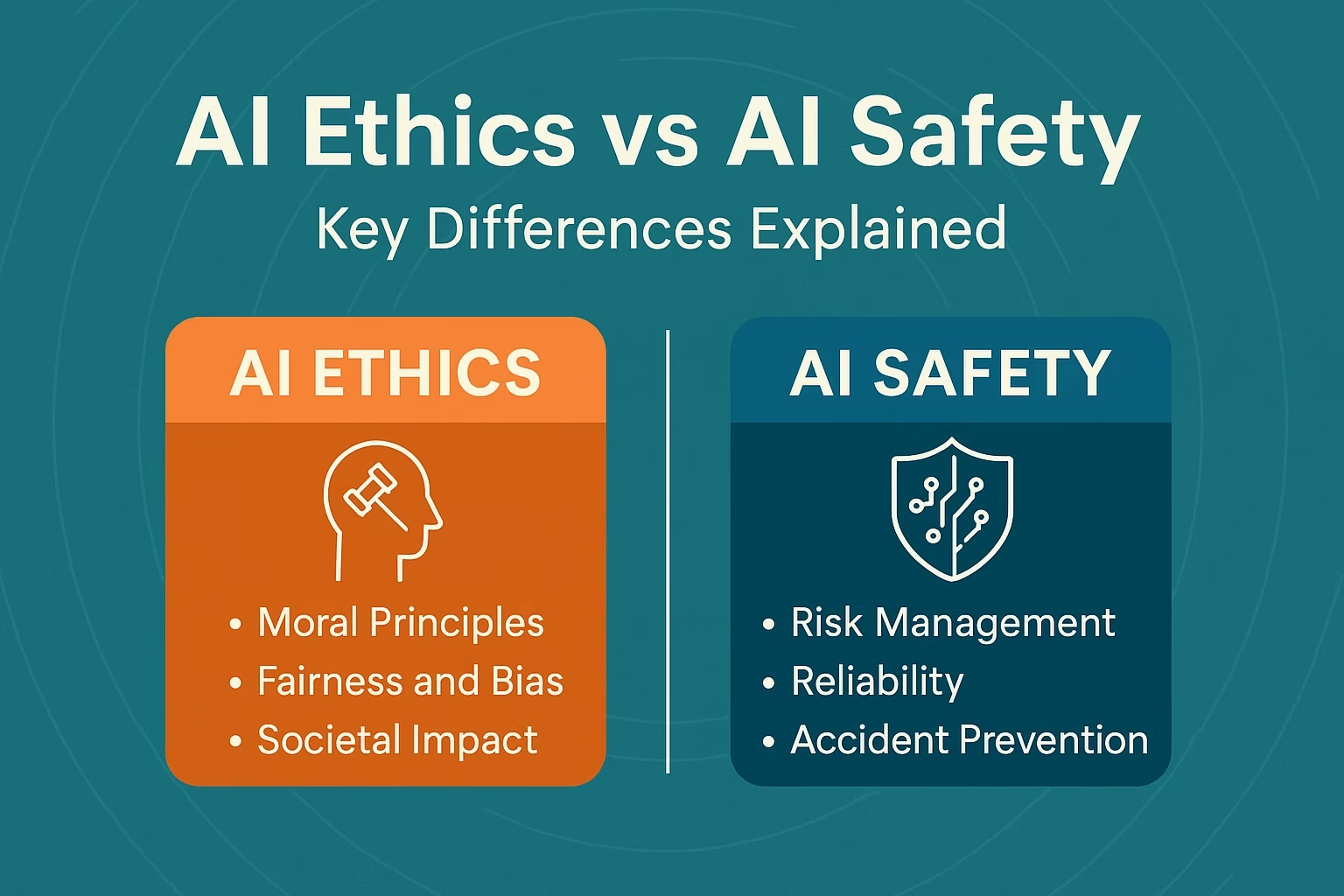
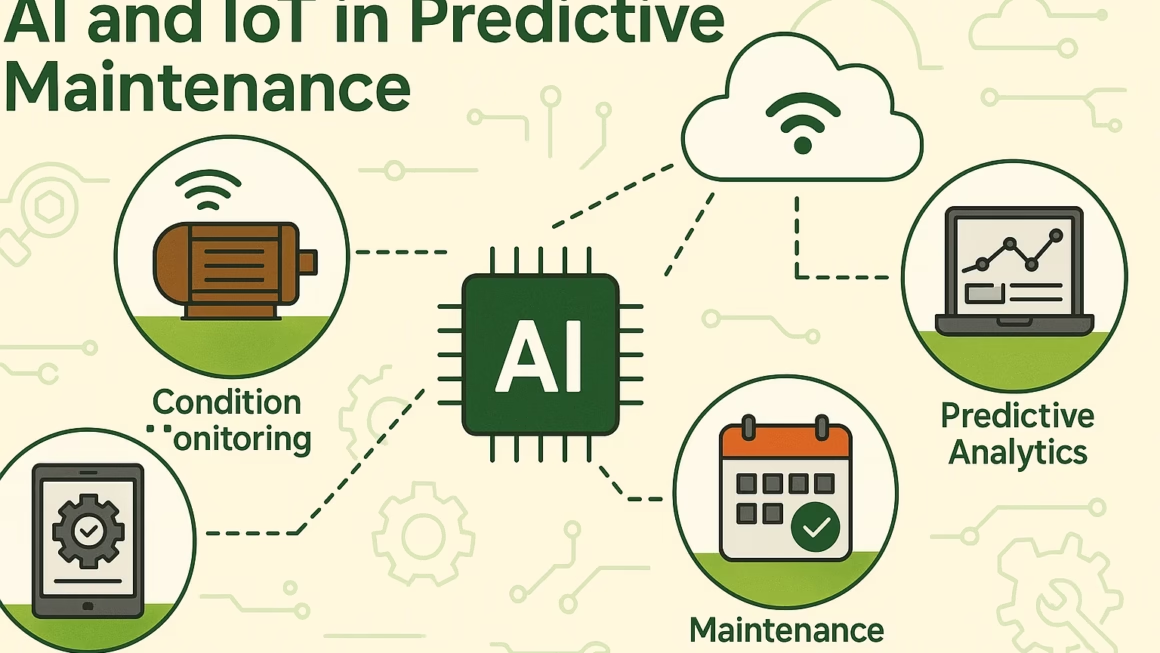
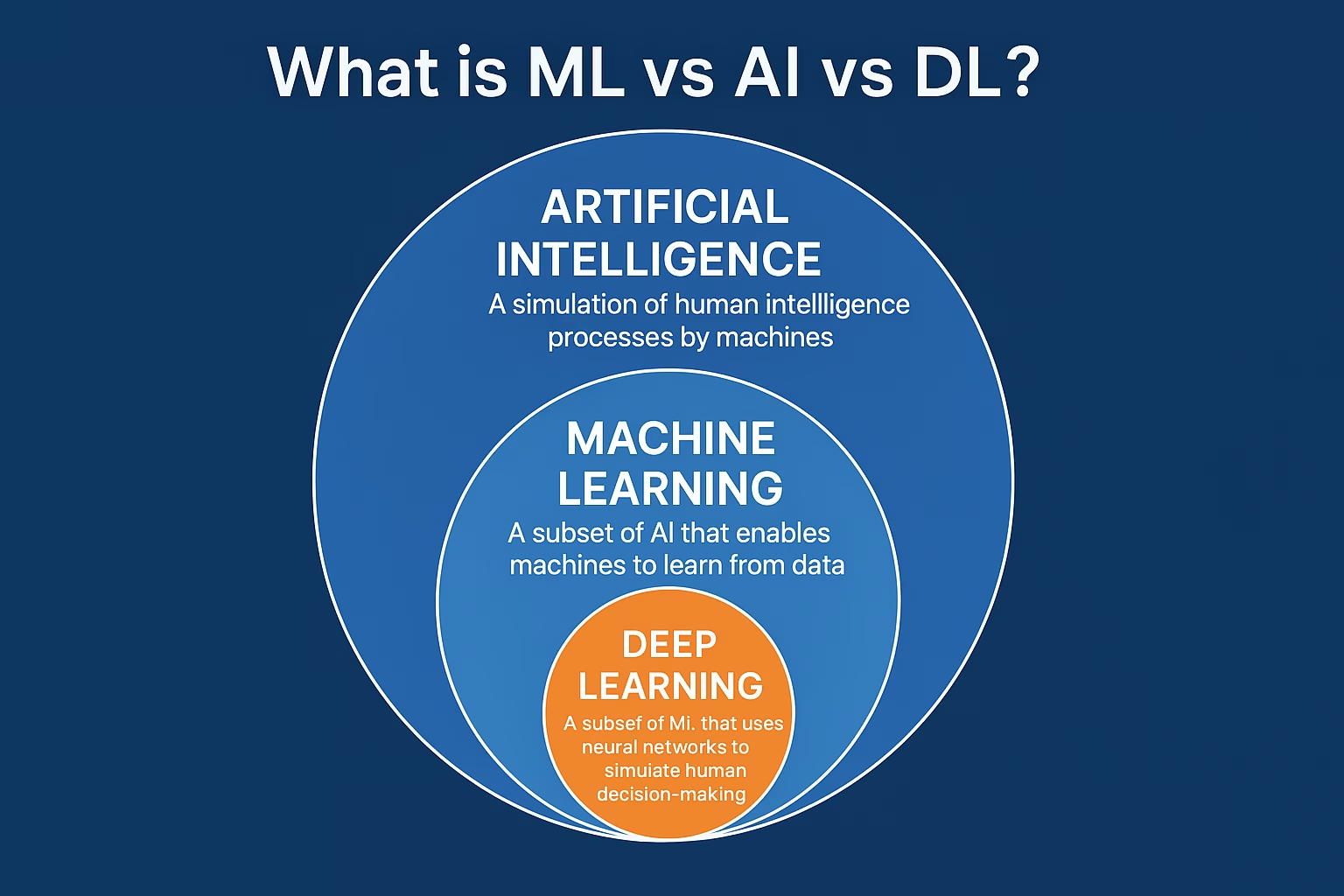
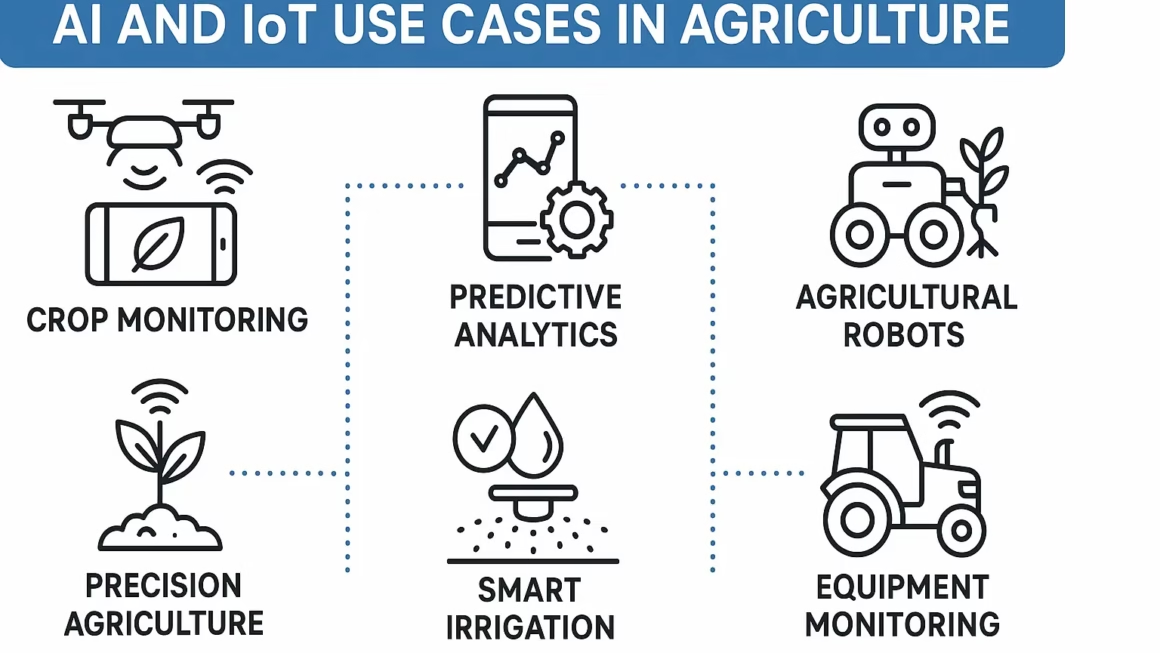
One thought on “AI Ethics vs AI Safety: 5 Key Differences Explained”